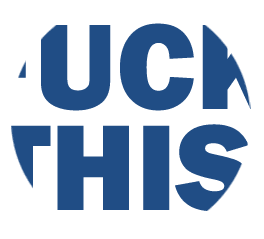Lately, I’ve been looking and dreaming about getting a true stereo audio system like what I used to have. A bit of research showed me that dedicated stereo systems aren’t dead, they’re just brands I am unfamiliar with. So, I’ve been spending lots of time reading and thinking and drooling over the idea of having a listening space.
And my CD purchases keep going. Completing my collection of the MCA Master Series wasn’t the end of my music collecting. Even though I’m not into modern music, there still remains a wealth of older music available for me to purchase. There are benefits to this. First, the music is cheap, because it’s old and used. Second, there is a chance of getting a collectable for cheap. A collectable CD? Worth more than a drink coaster? You’d be surprised. Especially in the era of music I purchase, there are a couple specific things to be on the watch for in order to get a CD that has collector value.
The thing to know is that when CDs first came out, in the mid-1980’s, the primary goal was to get as many titles available for sale as possible. In order to do that, record companies made glass masters of CDs straight from the master tapes used to create records of that time. Later on, when there was more available time, the record companies would remaster those original master tapes. The remastering process would include different EQ and effects, sometimes an improvement, sometimes not, but always different than the original.
Knowing that, when I say that there is an audience that insists on having the pure, original sound (defined as being the LP version), and that CDs that contain that sound are limited to early, early pressings, you can easily see the scarcity-to-value premise. Yes, the original pressings of CDs are more prized by audiophiles. That’s not to say they are always superior. As engineers’ mastering and remastering skills became better, CDs got better sounding, with better stereo separation and more dynamic range, but the “purity” of the original sound is still prized.
There’s a couple of simple clues to finding a first-run CD, and naturally, there’s a ton of subtleties that I can’t get into. But, if you want to get one of these CDs, you need to be looking for an album recorded pre-1990, and manufactured in either Japan or West Germany. One sure clue that you are getting a first-run CD is that the case spine is frosted smooth, instead of ribbed. Another sign, and one that raises the CD’s collectability, is if the CD is printed with a “target” design. Search for Target CD if you want to know more about these.
Yesterday, The GF and I made an impromptu stop at a local CD store. I was hoping to pick up an Ultradisc or two (Ultradiscs are gold-plattered CDs with highly-reputed remastering and are very desirable). Not finding any, I bought a couple of CDs by The Cars. $3 and $5 – not bad at all.
We stopped at Sonic and I took a closer look at my purchases. One CD I was immediately disappointed in myself with. It wasn’t a retail CD; it was a CD Club pressing. These are easily identified and I should have passed on it. Slightly depressed, I opened up the other CD and was shocked to see a target CD inside. I quickly closed the case and checked the case edge. It was frosted. I just got a target CD for $5, which would be sold by a knowledgeable seller for $15-$20. Mood immediately elevated.
I had discounted the thought of ever getting any rare CDs from my local CD shops, because I assumed these guys knew what they were selling. They should have identified that disc just as I had and sold it on the Internet for 3x what they sold it to me. But, since I had recently bought an Ultradisc for $22 (valued online at $45-$50) and now finding a target CD for $5, this gives me hope for finding other collector’s items.
